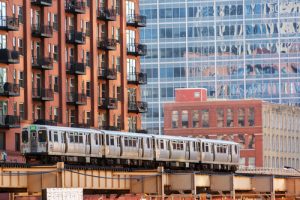 Imagine this: You’ve spent years perfecting your survival plan, learning skills, stockpiling food, and building what amounts to a fortress that’s basically in the middle of nowhere. You’re all set to ride out almost anything the world has to throw at you. When the inevitable disaster finally does come, you’re all set. This is the idea that many preppers have as an ideal scenario, but there’s one thing missing: the rest of the world.
Imagine this: You’ve spent years perfecting your survival plan, learning skills, stockpiling food, and building what amounts to a fortress that’s basically in the middle of nowhere. You’re all set to ride out almost anything the world has to throw at you. When the inevitable disaster finally does come, you’re all set. This is the idea that many preppers have as an ideal scenario, but there’s one thing missing: the rest of the world.
When talking about a disaster, is the act of surviving enough? For some people the answer to this is a resounding yes, but if you stop and think about it, surviving is only one small part of the larger picture.
Whatever the disaster is, it’s up to the survivors to rebuild and make society function once again. These may not be skills you would think about when deciding what to learn for survival situations, but without people helping to make things better, you won’t be surviving for much. There are some skills that you can learn to help make things better, and they’re probably not ones you would naturally think of.
1. Public Speaking
When thinking about disaster survival, most people focus on doing things solo, or with a small group of people. In a true TEOTWAWKI situation, these small groups will, at some point, need to start joining forces to make any real changes.
Learning public speaking can help you lead these larger groups and direct them to get work done as a team. While most survivors may not be comfortable talking to large groups, having this skill can easily make you into a leader, which can help you practice skill #2.
2. Town/City Planning
Once groups start to come together to form communities again, the need to plan a town or city will be crucial to long-term survival. This can range from deciding which buildings in a deserted town to rebuild first to have basic needs met to the complete planning and layout of a new community.
This doesn’t have to be full-size buildings and roads, but instead can be tents, cabins, even hand-built shelters. Organizing people into a community builds trust and gives a feeling of normalcy and togetherness that’s crucial to keeping a group of people together.
These skills can be learned by attending local community planning meetings, reviewing common town layouts, and even paying attention to how your own town is laid out. This is easier to see when your town is smaller, but even visiting a small town can give you insight into town planning. Another great resource is this link from The Guardian where they talk about building a city from scratch.
3. Issue Resolution
The only sure thing about bringing people together into a group is that there will be conflict. Add into the standard types of conflict a stressful situation like major disaster and you have a recipe for some very heated arguments and more likely than not, all-out fights.
By studying conflict resolution, you can help a community be better organized and work together better. Force and threat of violence will only go so far in stopping people from fighting, which is why knowing how to successfully resolve conflicts is so important.
Check out the tips in this link for a great place to start, and while it’s given in the first person, think about how these would apply to others and how you could use them to resolve other people’s conflicts as well.
Bringing It All Together
By learning these skills and more, you can be a positive force in rebuilding the communities that disaster has torn apart. Hiding away and surviving is great for when a major disaster first happens, but when you transition from immediate survival mode to long-term survival mode, it’s time to come out of hiding and start building communities once again.
This doesn’t mean that you should run up to the first person you see and invite them into your survival plan and hope for the best, but communities can and must be rebuilt, and by not joining in the rebuilding process, you actually hurt the survival of everyone.
